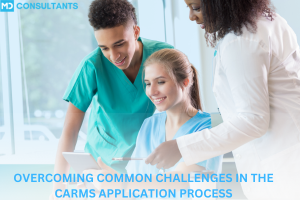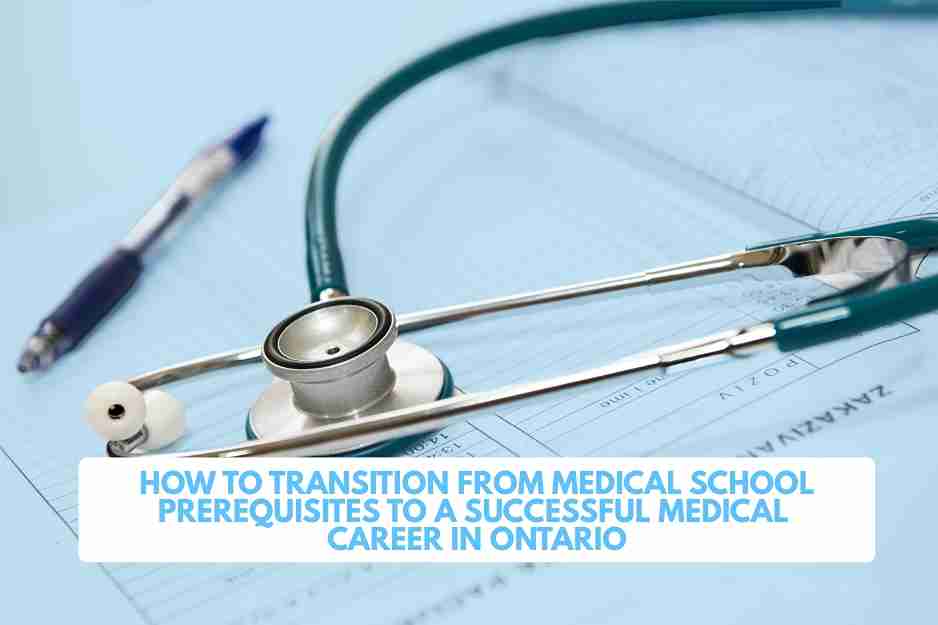While you’ll often hear advice about having a high GPA or MCAT, the CV component of your application to medical school should not be understated. It gives the medical school insight into who you are, what you do and what skills you may possess. Some schools disclose what percentage of the decision for invitation to interview or acceptance are determined by CV. For example, McGill University states that 10% of invitation to interview is based off your CV. While this number may sound small, you must remember that every bit counts when trying to get into medical school. Nevertheless, some schools put a greater emphasis on the CV component when it comes to offer of admission or invitation to interview, giving all the more reason to optimize your CV. Lastly, many schools will ask you questions based off of your CV during interviews. Therefore, it is imperative that your put forth your best CV to maximize chances of gaining an interview and an offer of admission.
What is a CV?
CV stands for Curriculum Vitae. It is essentially like a resume, with differences in format. A CV lists the experiences you’ve had- jobs, extra-curricular activities, research and the like- that show you are the person for the job, which in this case is medical school. It is used to highlight your experiences and skills, giving medical schools a window into who you are and what you do apart from school. The CV takes many forms in medical school applications, depending on the school. Ontario has a central system, called OMSAS, that requires you to create a single CV for all Ontario medical schools. Their CV equivalent is called the Autobiographical Sketch, or ABS for short. The ABS is divided into categories, including: formal education, employment, volunteer activities, extra-curricular activities, awards and accomplishments, research, and other. Most of these sections require that for each entry, you input a start and finish date, geographic location, number of hours, and a box allowing a description of 150 characters. Each entry also requires the name, phone number, organization and address of a person who can verify that the ABS entry truly took place.
Other schools have their own CV formats. However, the general format is often similar: description, dates, location, total hours, and verifier. As a pre-med, this is valuable information that you can start using now to both optimize your application and make completing your application easier when the time comes.
Here’s how:
Record your activities:
Completing your medical school application takes a long time. The last thing you want to do is not leave yourself enough time to complete your application and end up scrambling to finish it by the deadline. Luckily, there are things you can do before medical school applications are even released to make your life easier and your application better.
-Keep a spreadsheet for all activities you do.
-Make a tab for each category, like in the ABS: employment, volunteer activities, extra-curricular activities, awards and accomplishments, research, and other
-Record the dates and hours for each activity with a word or two describing the purpose for those hours, for example: meeting
-Record any key details of the activity that you may find helpful for writing the description in the application in the future
-Record the verifier for each entry. Record their full name, organization they’re a part of, address, email, phone number and address.
Here’s an example entry:
Tab: Extra-curricular activities
Activity: Co-President of Environmental Council
Dates:
01/01/19- 2 hours. Meeting
01/15/19- 1 hour. Meeting
01/27/19- 3 hours. Recycling event
Description:
-50 members in club
-Gain advocacy experience in community, local politics (advocacy= CanMED role!)
-Leadership (CanMED role)
-Club achieved national recognition from Nature Canada
Verifier:
John Doe
Professor of Environmental Science, X University
123 University Rd, Somewhere, Ontario
joedoe@gmail.com
(123) 456-7890
Why it’s important:
Most people end up on a wild goose chase trying to track down verifiers for all their activities. Given that the ABS allows entries since age 16, it can be really difficult to remember hours you spent doing a certain activity, or the information for someone who can verify that you did it. I cannot tell you the number of times I struggled to track down a person to verify many activities that I did. Plus, if you don’t track your hours, you’ll find yourself flipping through your calendar trying to recall that one time where you did that volunteering thing, or the time you were locked away in a research lab, but can’t quite remember how long. Save yourself the agony and make the spreadsheet! Keeping track of your activities as you go streamlines the application process and makes sure you don’t forget to account for hours you spent doing these activities.
This will also save you lots of time and stress, which is critical during the stressful application period. You’ll have more time and energy to work on essays, activity descriptions, and other tasks to create your best application possible.
Plus, don’t forget to contact MDconsultants to inquire about our application review services to make your application even better.
It’s never too early to start preparing for medical school- do yourself a favour and make that spreadsheet and start recording now. Your future self will thank you.


